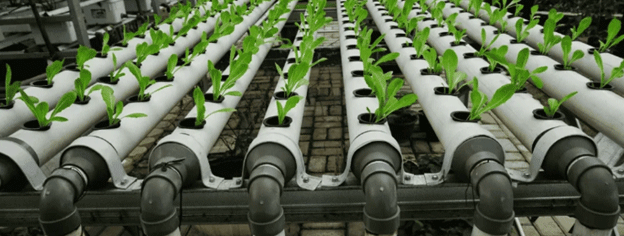Sameer Ahmad Bhat, a graduate in agricultural sciences, always dreamed of utilizing his knowledge to grow exotic vegetables. However, the lack of enough land was a persistent concern. After completing his graduation in 2023, Sameer connected with a firm specializing in hydroponic farming. With an initial investment of Rs 30,000, he set up a hydroponic vegetable farm on a small patch of land. Today, he grows a variety of exotic vegetables, including broccoli and lettuce, alongside local produce, and earns a substantial income.
“During my course, I came across this concept. I got in touch with a firm that provided assistance and training in hydroponic farming. I now grow vegetables in good quantities and earn a handsome amount of money,” Sameer shared.
Hydroponic farming has seen a significant rise in Kashmir over the years, especially in Srinagar, where farmers face limited land availability. This soil-free farming method, which uses nutrient-rich water to grow crops, offers a viable alternative in a region plagued by harsh winters and unpredictable weather. The benefits of hydroponics, such as year-round cultivation, higher yields, and resource efficiency, make it an attractive option for local farmers.
Kryzen, a national hydroponic farming firm, has played a key role in this shift. By providing assistance, training, and equipment, Kryzen has empowered many farmers in Kashmir to diversify their crops and increase profitability. “We get numerous inquiries from Kashmir. Farmers are eager to adopt hydroponic farming. From guiding them on crop selection to providing technical support, we ensure a smooth transition to this modern method,” said Shubani, an official from the firm.
The demand for hydroponically grown vegetables, especially in urban markets, promises better returns compared to conventional farming. “These crops, such as broccoli and lettuce, fetch higher prices and meet the growing demand for fresh, pesticide-free produce,” Shubani added.
Experts believe that the rise of hydroponics could transform Kashmir’s agricultural landscape. Irshad Ahmad Bhat, a botanist, noted, “Hydroponic farming offers sustainable, year-round cultivation. It is a promising solution for a region looking to balance traditional farming with modern innovation.”
As more farmers embrace hydroponics, the agricultural economy of Kashmir is set to evolve. This method not only addresses the limitations of traditional farming but also creates opportunities for higher earnings and resource conservation.
Hydroponic farming is revolutionizing agriculture in Kashmir, providing a sustainable and profitable alternative to traditional methods. By leveraging modern techniques and tools, farmers can overcome regional challenges and secure a brighter future for the agricultural sector.












